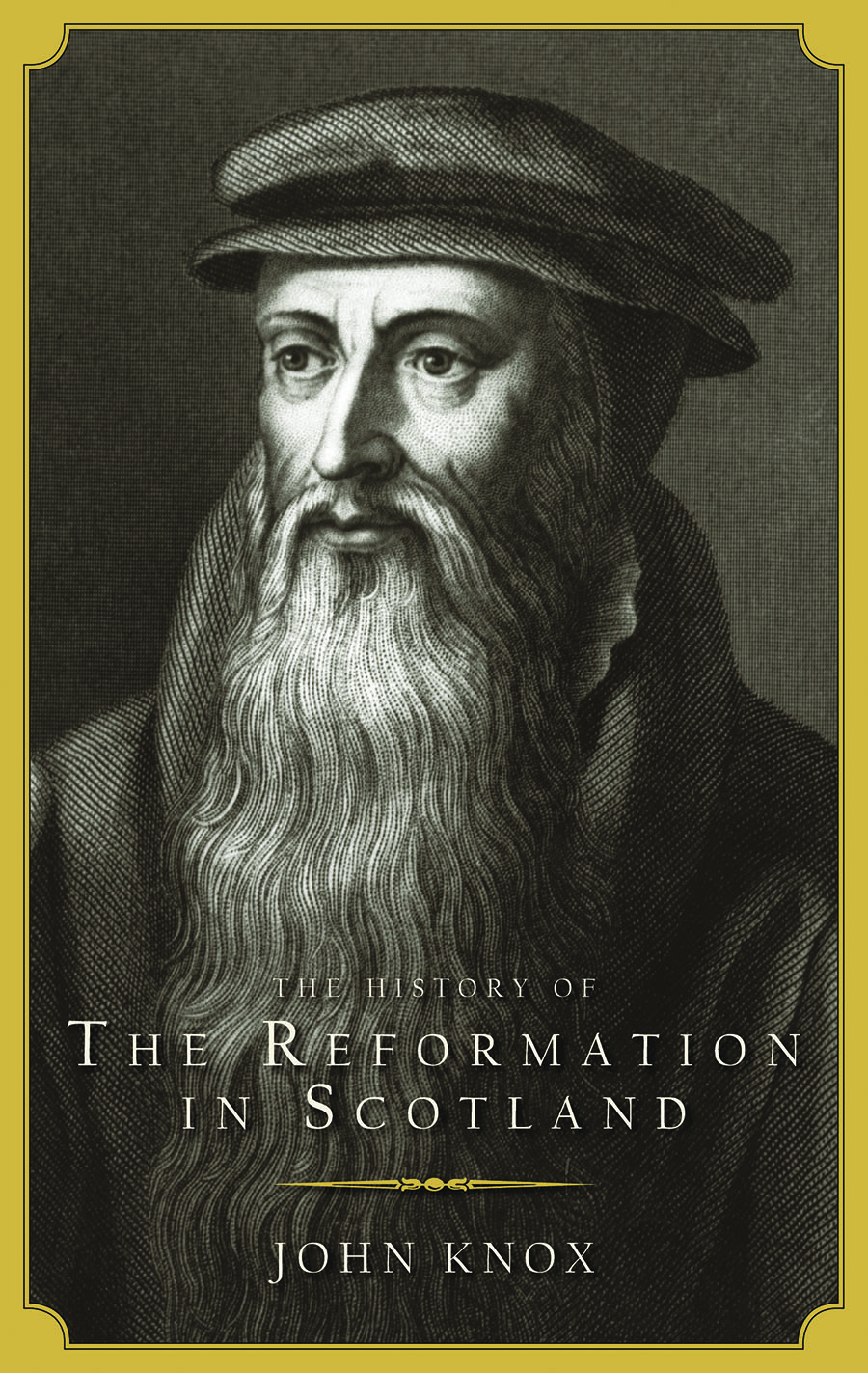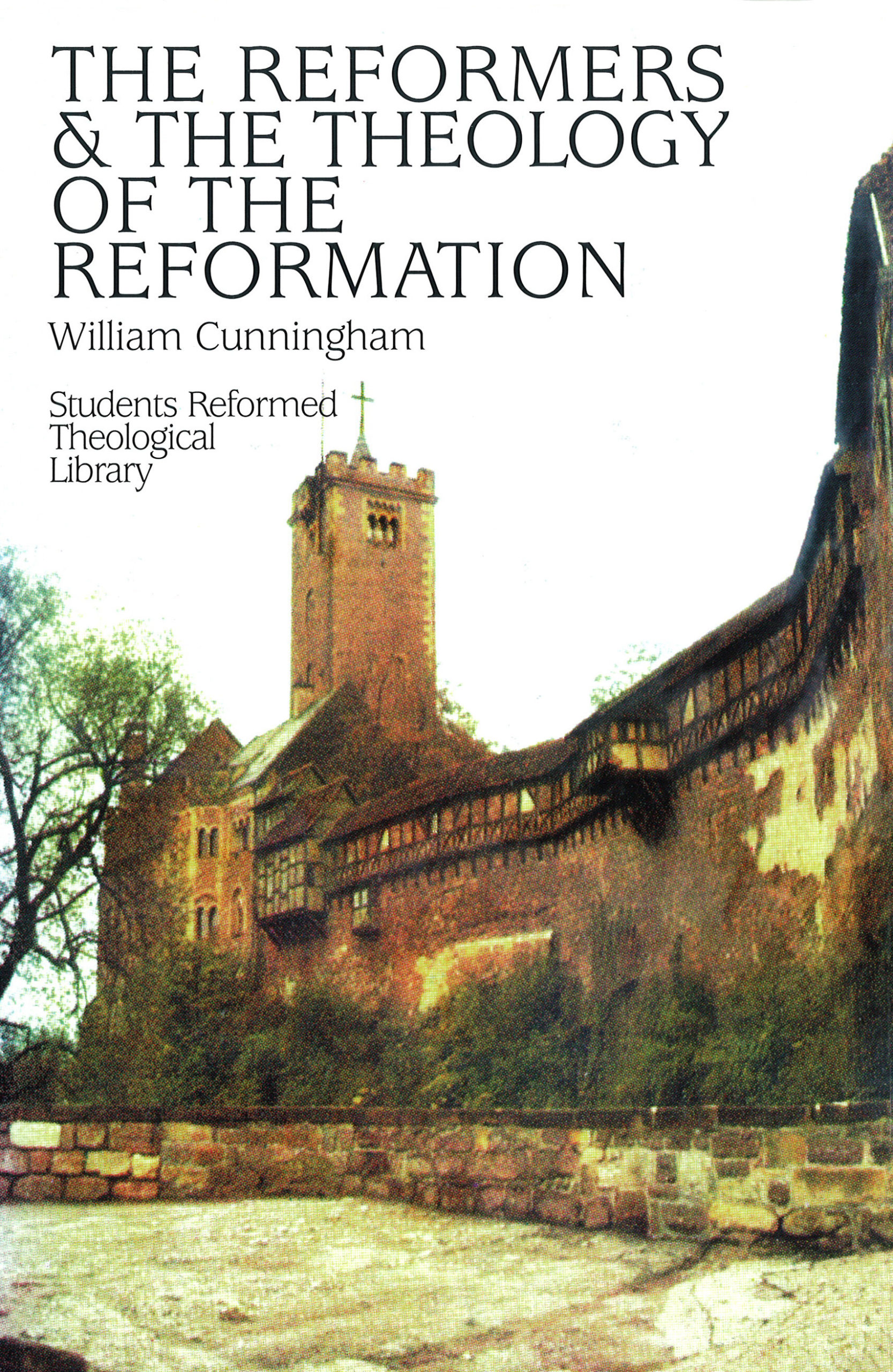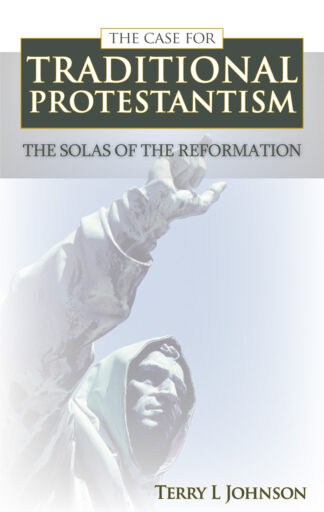Jacques Lefevre: A Reformer Before The Reformation
Jacques Lefevre has been variously called ‘The Pioneer of the Reformation in France’, ‘The Patriarch of the Reformers in France’ and ‘The Founder of the French Reformation’. Why then is so little written and known about a man to whom such titles are given by historians? There are two probable reasons.
Firstly, the dreadful persecutions which the Protestant Church endured in France. ‘Nowhere’, says the historian Merle D’Aubigne, ‘did it (the church) so often dwell in dungeons, or so resemble primitive Christianity in faith, in charity, and in the number of its martyrs’. As early as 1487 Pope Innocent VIII issued a Bull against the Waldensian Christians. ‘To arms’, ordered the pontiff, ‘and trample these heretics under foot as venomous serpents’. Consequently these poor disciples of Christ were hunted and slaughtered like beasts by their cruel persecutors. This persecution continued with varying intensity until the monstrous slaughter of the French Protestants on the eve of St Bartholomew’s Day on 24th August 1572, when somewhere between thirty thousand and a hundred thousand were massacred. This greatly checked and weakened the Reformation in France so that it did not develop and expand as it did in other lands.
Secondly, Lefevre is probably less well known because he did not make a complete break with the Church of Rome, as did Luther and others. Nor did he come to such a full understanding of the Word of God which later Reformers enjoyed.
Lefevre was a forerunner to the well-known Reformers, and like other forerunners he has been often overlooked and forgotten, while Reformers such as Luther and Calvin are widely read and known. There is a tendency to overlook the debt which the better-known Reformers owed to their predecessors, and to forget that they, like the Apostles, ‘entered into other men’s labours’.
Jacques Lefevre was born in 1455 at Etaples, a village in Picardy in France. He received a very poor education during his early years, but his natural genius and thirst for knowledge soon made up for his lack of good teachers. He travelled considerably in his quest for knowledge, three times to Italy and to Asia and Africa.
As early as 1493 Lefevre was a Doctor of Divinity at the University of Paris, called the Sorbonne, which was the guardian of the Catholic faith in France.
Lefevre became a distinguished teacher and was highly esteemed by the Humanist scholar Erasmus. Lefevre was a man of small stature and mean appearance, yet one with piety and nobleness of soul, whose learning and powerful eloquence had a strong attraction for all who heard him.
During his career Lefevre studied philosophy and published, among other works, the works of Aristotle. He was at this time a devoted son of the Roman Church. He would prostrate himself before the images of the Church and remain long on his knees praying fervently and devoutly.
When Lefevre became aware of the errors and corruptions within the Roman Church, he did not forsake the Church, but attacked the evil practices and sought to correct the errors from within the Church.
About the year 1507 Lefevre was engaged in writing life stories of many of the saints whom he so devoutly worshipped. In the Sorbonne library he found a Bible which he thought might assist him in his writing. However in the Bible he did not find the lives of saints, but he found the Lord Jesus Christ and the pure doctrine which had been hidden for centuries. Suddenly he was convinced of the excellence and beauty of the Scriptures. ‘They seemed to me’, said Lefevre, ‘to give off a perfume whose sweetness was beyond all compare, beside them all human studies are a fog and shadow. Since their study has been neglected, the monasteries have fallen into ruin, piety is dead and true religion has snuffed out.’ He was now convinced that the greatest need of his time was to return to the original Christian sources, consequently he resolved to devote his learning to a study of the Scriptures.
At this time a young student named William Farel was attending the University of Paris. Farel was later to become one of the leaders in the Reformation. It was he who strongly urged John Calvin to assist in the work of the Reformation in Geneva and was later to labour with Calvin in that great work.
Farel was soon impressed by the devotion of Lefevre and desired to become acquainted with him. He was delighted when he found himself kindly received by this learned man.
Sometime later Farel was led by Lefevre to adopt the doctrines of the Reformation and to come to a clearer understanding of the truth of God.
Lefevre used to say to Farel prophetically, ‘My dear William, God will renew the world and you will see it’:
In 1509 Lefevre published an exposition of the Book of Psalms. His exposition differed greatly from the allegorical method used by the medieval schoolmen for he sought to explain the plain meaning of the text.
In 1512 Lefevre translated the Epistles of Paul. In this translation he included a commentary in which he denied that men can be justified by good works, and taught that salvation was a free gift from God. He also taught the supreme authority of the Bible. Lefevre had come to appreciate these truths several years before Martin Luther was enlightened with the truth that ‘The just shall live by faith’ [Rom. 1:17]. While Luther was a monk at Erfurth in Germany he read Lefevre’s exposition of the Psalms. Also in 1527 we find Luther and Lefevre corresponding with each other.
Lefevre translated the four gospels in 1522 and wrote a commentary on them. A year later he translated the whole New Testament and by 1525 the Old Testament as well. These works were published by Elienne Dolet (1509-1546) who also published Calvin’s earlier writings. Lefevre’s Bible became the Bible of the French Protestants much through the assistance of Pierre Robert Olivetan. Olivetan introduced his cousin John Calvin to the Reformed faith and doubtless to Lefevre’s Bible and writings. Lefevre was about seventy years old when Calvin was a student in Paris.
With the publication of the Scriptures the work of God began to grow quickly in France, many coming to a knowledge of the truth.
Lefevre continued his teaching in the University of Paris and gathered around him many who were eager to learn the truth of the gospel. The University was soon stirred by this new teaching. In defending the truth that we are not justified by our works, Lefevre stated, ‘Does not St James in his first chapter declare that every good and perfect gift cometh from above? Now who will deny that justification is a good and perfect gift?’
Concerning our works, he continued ‘Thus works are necessary, but only as signs of a living faith, which is accomplished by justification.’
On the subject of redemption through Christ’s death, he said ‘Ineffable exchange, the Innocent One is condemned and the criminal acquitted; the Blessed is cursed, and the cursed is blessed; the Life dies, and the dead live; the Glory is covered with shame, and He who was put to shame is covered with glory:
He acknowledged that all salvation proceeds from God’s sovereign love and mercy. He stated, ‘Those who are saved are saved by election, by grace, by the will of God, not by their own (will). Our own election, will and works are of no avail: the election of God alone is profitable. When we are converted, it is not our conversion that makes us the elect of God, but the grace, will, and election of God that converts us.’
Lefevre recognised the importance of the Lord Jesus Christ. He said, ‘Religion has but one foundation, one object, one head, Jesus Christ, blessed for evermore; alone He hath trodden the winepress. Let us not call ourselves after St Paul, or Apollos, or St Peter. The cross of Christ alone openeth the gates of heaven, and shutteth the gates of hell.’
Many were influenced by the writings and teaching of Lefevre. In the opinion of Theodore Beza he was the man ‘who boldly began the revival of the pure religion of Jesus Christ’ in France. William Farel says concerning his own experience, ‘Lefevre extricated me from the false opinion of human merits, and taught me that everything came from grace: which I believed as soon as it was spoken.’
Briconnet, the Bishop of Meaux, a large diocese east of Paris, became disillusioned over the state of the Roman Church. He unburdened his soul to Lefevre, who placed a copy of the New Testament in his hand telling him to read it. Briconnet read the New Testament and his eyes were enlightened; he then ardently desired his whole diocese to share in the knowledge of this wonderful gospel. Briconnet used his wealth to print hundreds of copies of Lefevre’s New Testament; consequently the work of God flourished.
Among the noble women who were influenced by Lefevre’s preaching was Anne Boleyn, who later became the wife of King Henry VIII until her execution in 1536. Marguerite, the sister of Francis I, King of France, who later became Queen of Navarre, a province in Southern France, took great delight in hearing Lefevre preach, and the good seed sown in her heart bore much fruit to the glory of God.
Persecution soon arose against Lefevre and the Reformation. The University of Paris, the Sorbonne, condemned Lefevre’s comments on the gospels as heresy, his books were burned and he was expelled from the University. Lefevre went to Meaux, to his former student and friend, Bishop Briconnet. Here for a time he was protected and was free to preach the gospel of Christ.
At this time Francis I was taken captive by Charles V, King of Spain.
All attempts to secure his release failed. At last the Queen Mother appealed to the Pope asking him to intervene on Francis’ behalf. The Pope was unable to help, but replied stating that the defeat of France was a punishment from God because they had allowed heretics to multiply in the land, and that immediate steps should be taken to exterminate them. Consequently the Queen called the Parliament together with the head of the Sorbonne present. Harsh persecution was eagerly advocated for those who followed the Reformation. Bishop Briconnet was summoned before them. ‘Renounce or the stake’ they demanded. Briconnet’s courage failed; he was made to sign a promise that he would restore the worship of Mary and the saints, forbid the buying or reading of the New Testament or any Lutheran tracts, and to silence all Protestant preachers in his diocese. Lefevre and Farel fled. Lefevre to Strassburg in Germany and Farel eventually to Geneva. In his desire to remain unknown, Lefevre used a borrowed name during his stay in Strassburg. With heavy heart he fell upon his knees and prayed to God ‘to perfect that which he saw them beginning’.
Upon the release of Francis I, Lefevre was recalled to France to become the tutor of the royal children, and was given the task of rearranging and cataloguing the King’s Library at Blois. Lefevre, being an old man by this time and still being threatened with persecution from several quarters, wrote to Marguerite, Queen of Navarre, for protection. She made a request to the King, mentioning only the old man’s need of a change of air, but intending to keep him at her castle. The request was granted and the aged Lefevre went to live at Navarre. Here he remained for seven years, meeting and conversing with the refugees who fled from the persecutions.
When Calvin was forced to flee from Paris he went to visit Lefevre.
This was the first time they had met. Calvin had only known of Lefevre by reports and by his writings. Calvin had many questions to ask Lefevre, who listened sympathetically and answered helpfully.
Lefevre was by now greatly advanced in years. One day Queen Marguerite invited him to dine with her in company with several learned men, with whose conversation she was greatly delighted. In this cheerful society Lefevre seemed strangely sorrowful. Marguerite wished to know the reason; the old man deplored his life and spoke of his envy for those who had won the martyr’s crown: ‘While I’, said he, ‘–O what a wicked man I have been! — have lived upwards of a hundred years and sought to lengthen out my days by a shameful flight.’ Marguerite, with many texts of Scripture, sought to reassure him that he must not deplore his lot. The other guests did the same, showing him God’s loving kindness in granting him a sanctuary in his old age, and at last the old man was restored to comfort. Then, bidding them a solemn goodnight and excusing himself as needing a sleep, he retired to his room, where he fell asleep, never to wake again on earth.
Jacques Lefevre died in 1536 and was given an honourable burial attended by Queen Marguerite.
This article first appeared in the April 1988 edition of the Banner of Truth Magazine and has been reproduced in celebration of Reformation Day.
More on the Reformers and the Reformation

Description
Jacques Lefevre has been variously called ‘The Pioneer of the Reformation in France’, ‘The Patriarch of the Reformers in France’ and ‘The Founder of the French Reformation’. Why then is so little written and known about a man to whom such titles are given by historians? There are two probable reasons. Firstly, the dreadful persecutions […]

Description
Jacques Lefevre has been variously called ‘The Pioneer of the Reformation in France’, ‘The Patriarch of the Reformers in France’ and ‘The Founder of the French Reformation’. Why then is so little written and known about a man to whom such titles are given by historians? There are two probable reasons. Firstly, the dreadful persecutions […]

Traditional Protestantism.
The Solas of the Reformation
Description
Jacques Lefevre has been variously called ‘The Pioneer of the Reformation in France’, ‘The Patriarch of the Reformers in France’ and ‘The Founder of the French Reformation’. Why then is so little written and known about a man to whom such titles are given by historians? There are two probable reasons. Firstly, the dreadful persecutions […]
Latest Articles
On the Trail of the Covenanters 12 February 2026
The first two episodes of The Covenanter Story are now available. In an article that first appeared in the February edition of the Banner magazine, Joshua Kellard relates why the witness of the Scottish Covenanters is worthy of the earnest attention of evangelical Christians today. In late November of last year, on the hills above […]
A Martyr’s Last Letter to His Wife 11 February 2026
In the first video of The Covenanter Story, which releases tomorrow, we tell the story of James Guthrie, the first great martyr of the Covenant. On June 1, the day he was executed for high treason, he coursed the following farewell letter to his wife: “My heart,— Being within a few hours to lay down […]
